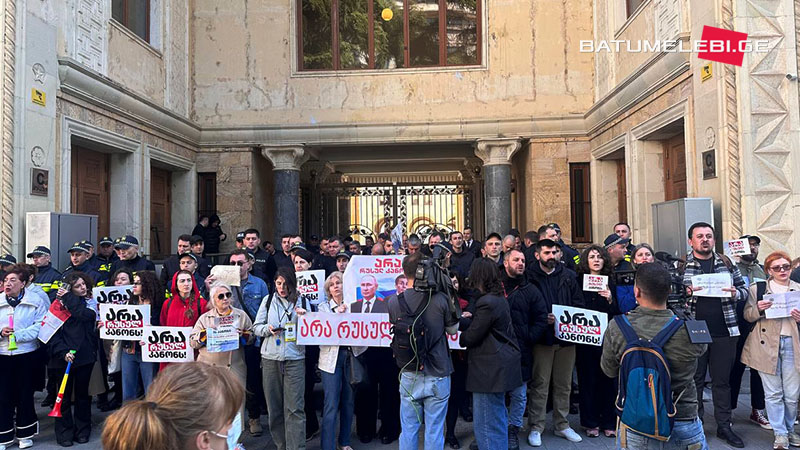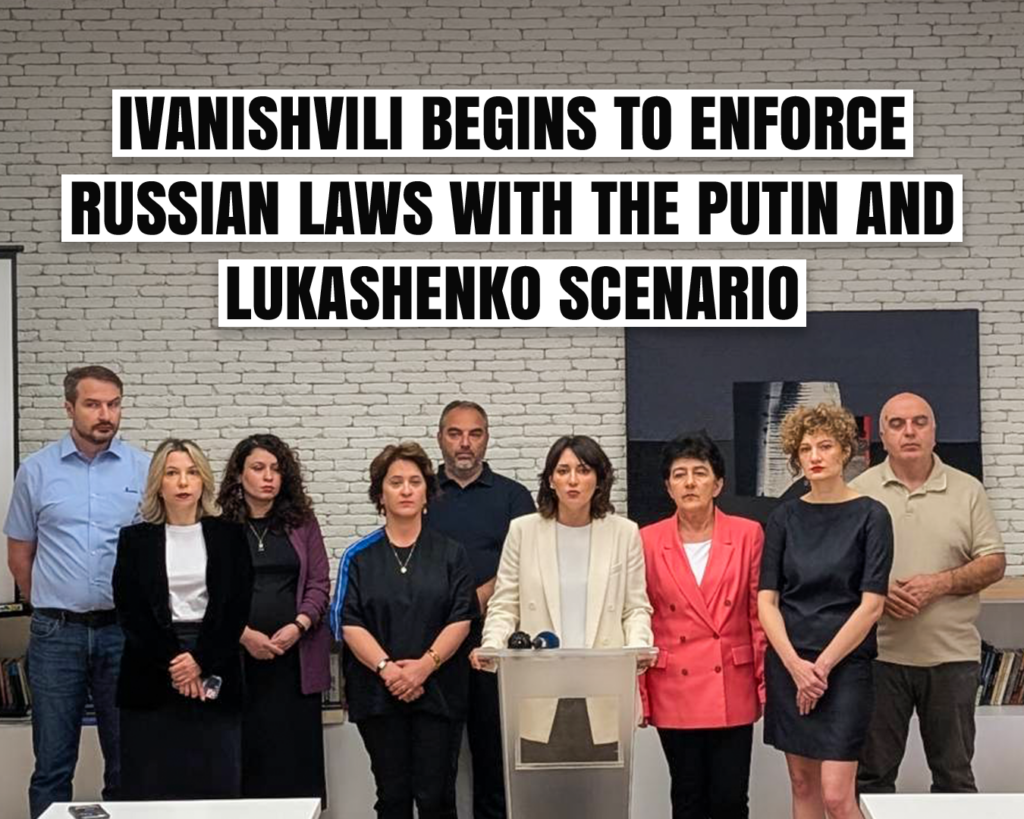As Georgia approaches crucial parliamentary elections, its media landscape faces unprecedented challenges. Following the adoption of the Russian-style law, “Georgian Dream” has escalated pressure on independent media by leveraging its influence over the National Communications Commission and the judiciary. These actions undermine media rights and core democratic principles, directly affecting citizens’ ability to make informed decisions.
Recent decisions by the Communications Commission (ComCom) highlight a disturbing trend of state institution capture. The regulator body drew up a protocol on the administrative offense to TV channels “Mtavari Arkhi,” “TV Pirveli,” and “Formula” following a complaint from “Georgian Dream” for refusing to air unethical advertisements that exploited the Ukrainian tragedy. The European Union condemned “Georgian Dream” for using photos from the war in Ukraine to “manipulate opinion, spread disinformation, and fuel pro-Russian and anti-Ukrainian sentiments” ahead of the elections. These punitive measures not only violate media independence but also reinforce the ruling party’s propagandistic narratives.
During the same period, the commission penalized TV “Formula” for granting electoral subject status to the opposition party “Gakharia for Georgia,” based on an Edison Research study. This decision exemplifies systemic bias that threatens political pluralism, attempting to punish critical media before elections and depriving the public of diverse viewpoints.
The lack of judicial independence further complicates the issue. Instead of providing oversight, the judiciary has supported the regulatory body’s unjustified decisions, leading to fines for critical media outlets. This trend is a clear attempt to silence dissenting voices and stifle media coverage of differing opinions.
Additionally, the continued use of Strategic Lawsuits Against Public Participation (SLAPP) remains problematic. In one case, the Tbilisi City Court ordered “TV Pirveli” and journalist Sofiko Niauri to pay 10,000 lari in damages following a lawsuit by former Interior Minister Alexander Chikaidze, a figure linked to “Georgian Dream.”
The harassment of journalists, such as Sulkhan Meskhidze, founder and editor of “Ajara Times,” is particularly alarming. After reporting that a newly opened Batumi bypass road was incomplete and blocked by concrete slabs—despite a high-profile ceremony led by top “Georgian Dream” officials—Meskhidze received abusive messages from an unknown sender.
These threats and biased administrative decisions reflect the hostile climate encouraged by “Georgian Dream” toward independent journalists, hindering their ability to report the truth. This atmosphere erodes public trust in the media, reducing the quality of information available to citizens and distancing them from the democratic process. The people of Georgia deserve a media environment that fosters informed dialogue, which is essential for a healthy democracy.

